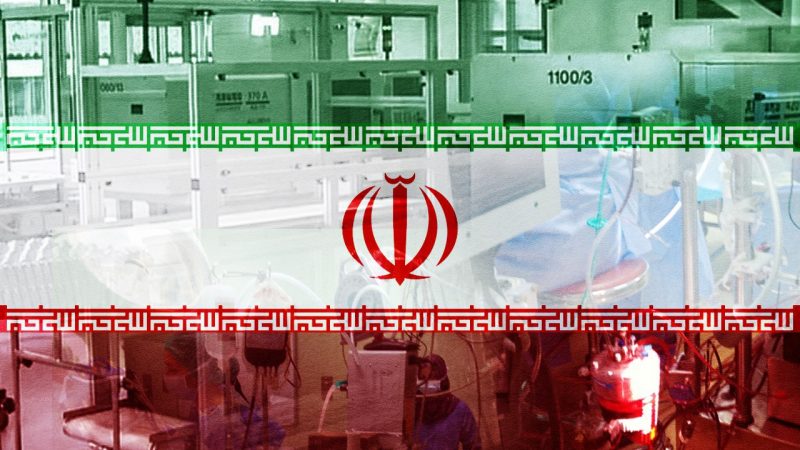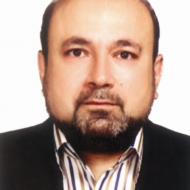On March 25, representatives of Russia, China, Iran, Syria, North Korea, Cuba, Nicaragua and Venezuela, wrote a letter to Antonio Gutterres, Secretary General of UN, asking the international organization to take legal steps against one-sided sanctions, mainly those introduced by the US against other countries, particularly in light of the way these sanctions have affected the fight against the spread of coronavirus and in relation to the potential problems of international health security that might result.
Coronavirus has killed 2,600 in Iran, but U.S. sanctions are obstructing medicine and aid from getting in.@SecPompeo and @stevenmnuchin1: Pandemics know no borders. Let us put aside our countries' disputes and lift sanctions to reduce human suffering. https://t.co/fRFndKSP39
— Bernie Sanders (@SenSanders) March 31, 2020
HOW HAVE US SANCTIONS AFFECTED IRAN’S MEDICINE AND FOOD SUPPLY?
While the Americans claim their sanctions do not affect humanitarian aid nor the medical and food supply of other countries, in Iran these areas are being targeted almost directly.
The main reason Iran was unable to diagnose infected people entering the country two months ago was their limited supply of vessels and medical equipment.
The country also had a limited amount of the protective equipment needed by medical staff to handle patients with the virus.
For this reason, many doctors, nurses and high-ranking officials, or people close to them, were infected when they had to visit infected patients or places (like the holy city of Qom) unprotected.
US has gone from sabotage & assassinations to waging an economic war & #EconomicTerrorism on Iranians—to #MedicalTerror amidst #covid19iran.
This even "exceeds what would be permissible on the battlefield."
STOP aiding WAR CRIMES.
STOP obeying IMMORAL & ILLEGAL US sanctions. pic.twitter.com/pN6z2kbg8M
— Javad Zarif (@JZarif) March 29, 2020
While there is no mention of restrictions on medical equipment or medicine in the official text of the American sanctions, the measures do target the banking system, leaving Iran unable to open the official L/C needed for import of medical supplies they need, preventing any company from being able to offer such products even if they wanted to.
Moreover, the OFAC (Office of Foreign Assets Control) under the US Treasury Department has a long list of medical equipment which it claims might have dual uses and is thus not allowed to be exported to Iran.
For example, according to the OFAC list, microwave, vacuum and sterilizing equipment 20 liters and above, is prohibited.
To understand how strict these measures are, one might recall that the smallest size of a home microwave these days is around 20 liters.
A year ago, the WHO (World Health Organization) was unable to send the sterilizers it bought to for cleaning medical equipment used to help people who were facing floods and earthquakes in Iran, since these equipment were over the OFAC sanctions limit.
SANCTIONS ARE THE REASON THE VIRUS SPREAD SO QUICKLY IN IRAN
Due to the fact that Iranians lacked the kind of equipment they needed as a result of sanctions, the coronavirus was able to enter the country with virtually no resistance and spread rapidly.
The only tools at hand were thermometers used to measure body temperature, which were only minimally useful given that symptoms generally do not appear for the first two weeks a person is infected.
Coronavirus in Iran: globalist weapon or survival of the fittest?
Although Iranian health authorities asked all the relevant international organizations to help them obtain the proper equipment, no one answered their call due to American pressure.
As a result, it is clear that US sanctions significantly helped assist the spread of the virus in Iran.
While the virus would undoubtedly have spread to Iran with or without sanctions in place, the substantial medical care and facilities Iran has would likely have slowed its spread significantly.
Coronavirus in Iran: Struggling to save lives under US sanctions
As the WHO itself has noted, Iran has some of the most advanced medical systems and facilities in the region.
The US insistence on continuing one-sided sanctions against Iran is directly helping this virus spread around Iran.
THE US BUYS THE CONSCIENCE OF THE GLOBAL COMMUNITY
The is attempting to offset the political pressure they have faced to scale back sanctions on Iran by proposing to send the country medical aid, however, their proposal of course came with political demands that Iran naturally refused.
The Iranians saw the US offer as the latest form of political pressure rather than a genuine offer, and therefore refused.
Will the US and Israel strike Iran amid the COVID-19 outbreak?
Moreover, the “aid” the Americans were offering was described in vague terms, and was very likely not quite what the Iranian health system needed.
As president Rouhani plainly said during a government meeting on March 25, Iran welcomes any medical aid from any country… but only medical aid, not political proposals.
The Europeans have tried to push the US to scale back the international pressure against its sanctions by proposing sending medical aids through Doctors Without Borders. Iran welcomed this help and sent a list of what was needed, yet, once again, US sanctions prevented the organization from acquiring the supplies needed by Iranian authorities such as protective gear for doctors and doctors specialized in respiratory system diseases. The country ended up receiving some 40 beds and some non-experienced nurses, a matter which deeply angered the Iranians to the point that they asked DWB to withdraw from Iran altogether.
Keep in mind that Iran is not a poor country and is not in need of alms: they have their own dignity and, according to Mr. Abd Al-Naser Hemmati, the Governor of Iranian Central bank, Iran owns billions of dollars of cash assets in other countries. Some estimate that this money amounts to more than $180 billion… in other words, what Iran wants is to be able to use its own money to buy medical equipment and medicine from wherever they want, even from American companies. Is that such an absurd demand?
US BLOCKS MEDICAL EQUIPMENT NEEDED TO FIGHT THE CORONAVIRUS IN IRAN
Last week, it was confirmed that US had pressured the UK to stop a shipment of 20million 3M N95 masks to Iran, moreover Mr. Abbas Mousavi, the spokesman of the Iranian foreign ministry, confirmed that Iranian trucks carrying medical equipment were stopped on the Romanian and Bulgarian borders at America’s request.
.@stevenmnuchin1 while my team is literally CREATING jobs for ppl during #COVID19 AND producing near-n95 quality masks to DONATE to doctors here in the US, my own aunt, a doctor in Iran, doesn't have protective gear bc of shortages from YOUR VIOLENT SANCTIONS. #EndCOVIDSanctions https://t.co/6hNyy0tNx0
— Hoda Katebi هدی کاتبی (@hodakatebi) March 24, 2020
THE EFFECT OF US SANCTIONS ON GLOBAL HEALTH
These procedures confirm that the US Administration doesn’t care about the medical consequences it’s political decisions have not only on Iranian health security, but also on global health security. It is time for the international community to take steps against these irresponsible and deadly policies.
Despite the fact that the US has the biggest economy in the world, trade is hardly the only relevant factor at play, a fact which this coronavirus epidemic has clearly highlighted. Experts emphasize that the epidemic cannot be defeated unless all countries, regardless of their current friendship or enmity, join forces. The virus doesn’t choose its victims based on nationality, ethnicity or color: it attacks all human beings. It is clear that the US’ hostile sanctions against other countries have begun to endanger global health security and human beings in general.
The time has come for the international community to take proactive steps in their own national security and stand together against the US. While the US is as powerful as it is irresponsible, it could not withstand a unified global resistance.









Leave a Reply